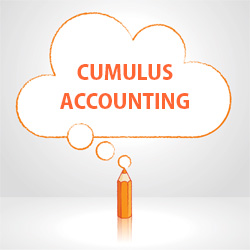 If a tax-related promotion sounds too good to be true, it probably is. Before you’re tempted to click on a link or make a call, check first with your tax professional or the Canada Revenue Agency (CRA).
If a tax-related promotion sounds too good to be true, it probably is. Before you’re tempted to click on a link or make a call, check first with your tax professional or the Canada Revenue Agency (CRA).
Through this web site and our email newsletter, Nevcon Accounting will highlight new variations of tax scams that are making the rounds. For example, the Canada Revenue Agency (CRA) is warning Canadians about getting involved in tax schemes where promoters, including some tax representatives and tax preparers, are claiming that individuals can get a significant tax write-off by investing in real estate through a limited partnership.
What are tax schemes?
Tax schemes are plans and arrangements that attempt to deceive taxpayers by promising to reduce the taxes they owe, for example through large deductions or promises of tax-free income. Schemes can also include other creative ways to convince people they could pay less taxes.
Here’s how this scheme works:
This scheme is advertised as an investment opportunity in real estate through a limited partnership. It is usually heavily promoted as a product with a significant tax advantage and limited liability for the investor. The promoter of the scheme promises a tax write-off for more than double of what was invested.
Potential investors are advised that they can claim a significant tax write-off because of costs being expensed in the initial year of the project. For example, the investor has invested $5,500 and is advised that they can write it off on their taxes for $12,500 due to financial services, lease enhancement and tenant improvement costs expensed in the first year. This is not the case.
Limited partnerships are unique arrangements that provide investors with certain benefits similar to partnerships and corporate entities. However, different than general partnerships, the investor’s liability is restricted to the amount they invested. Therefore, they cannot claim a higher tax write-off than invested.
Your actions may have serious consequences.
Through increased audits of promoters, improved information gathering and informing taxpayers on how to recognize tax schemes, the CRA continues to identify and shut down tax schemes.
Those who choose to participate in these schemes, as well as those who promote these schemes, face serious consequences, including penalties, court fines and even jail time.
What can you do to protect yourself and other taxpayers from tax schemes?
- Get professional, independent advice before investing, especially if a deal seems too good to be true.
- If you have participated in a scheme, come to CRA to correct your tax affairs through their Voluntary Disclosures Program … before they come to you.



 If a tax-related promotion sounds too good to be true, it probably is. Before you’re tempted to click on a link or make a call, check first with your tax professional or the
If a tax-related promotion sounds too good to be true, it probably is. Before you’re tempted to click on a link or make a call, check first with your tax professional or the 


